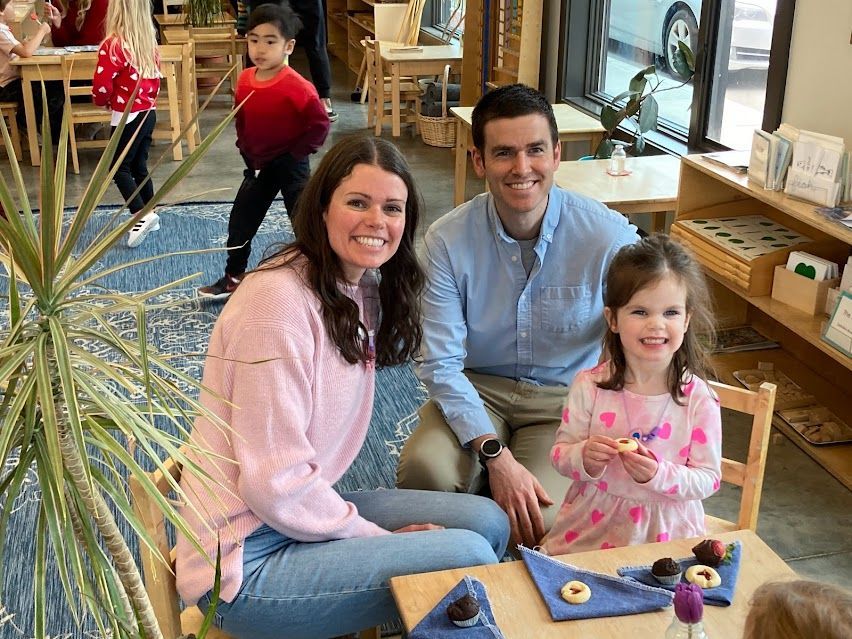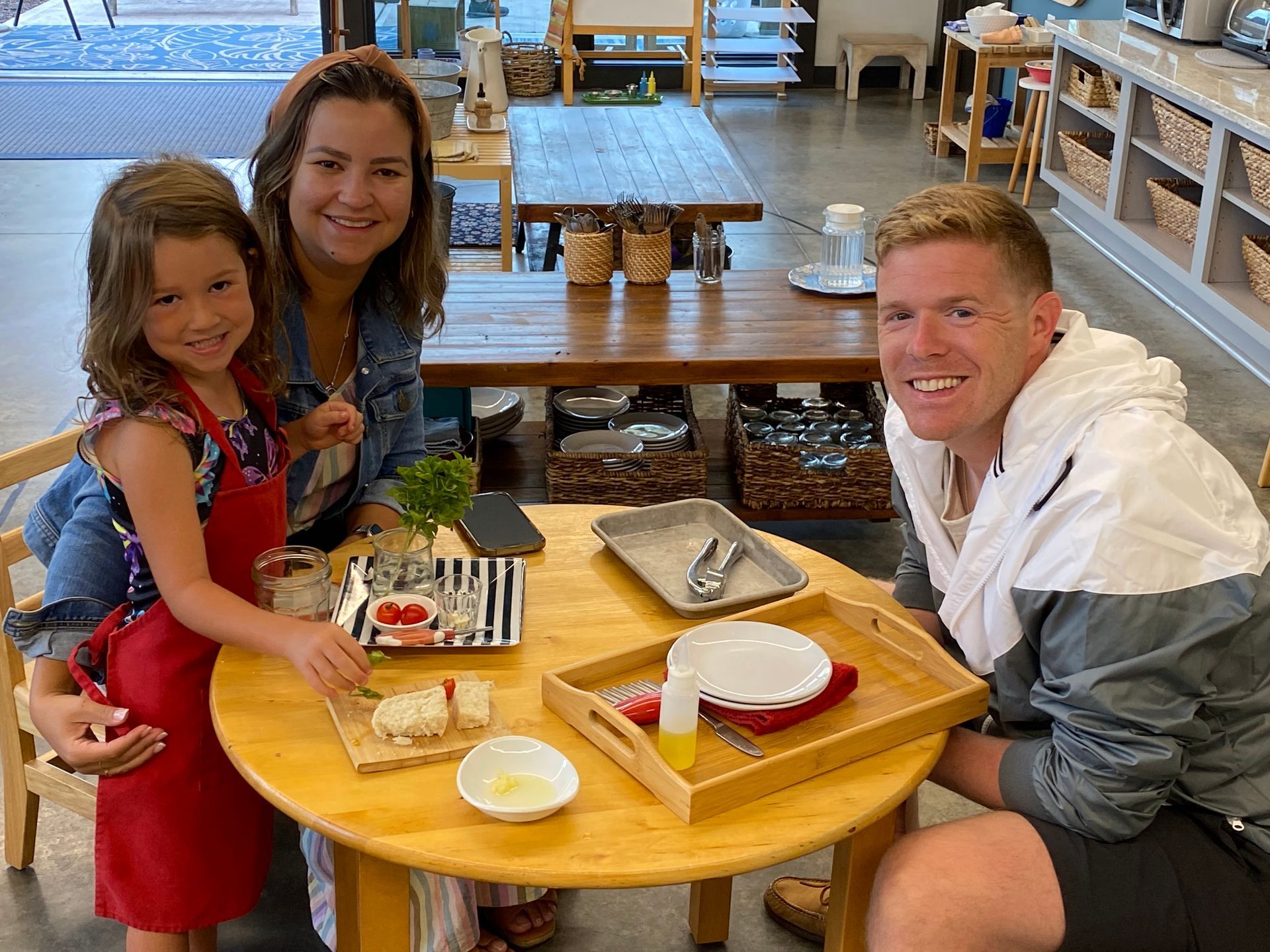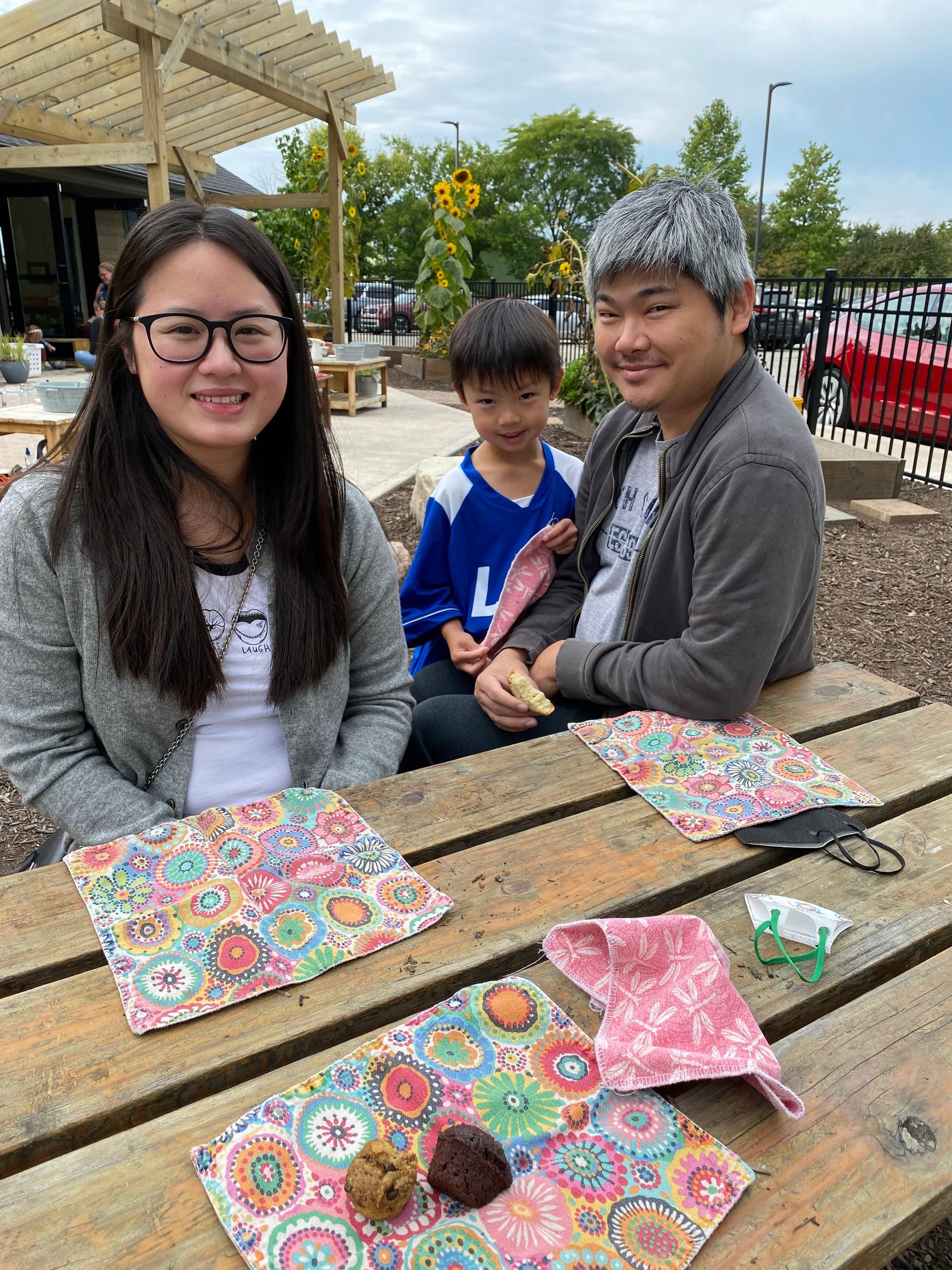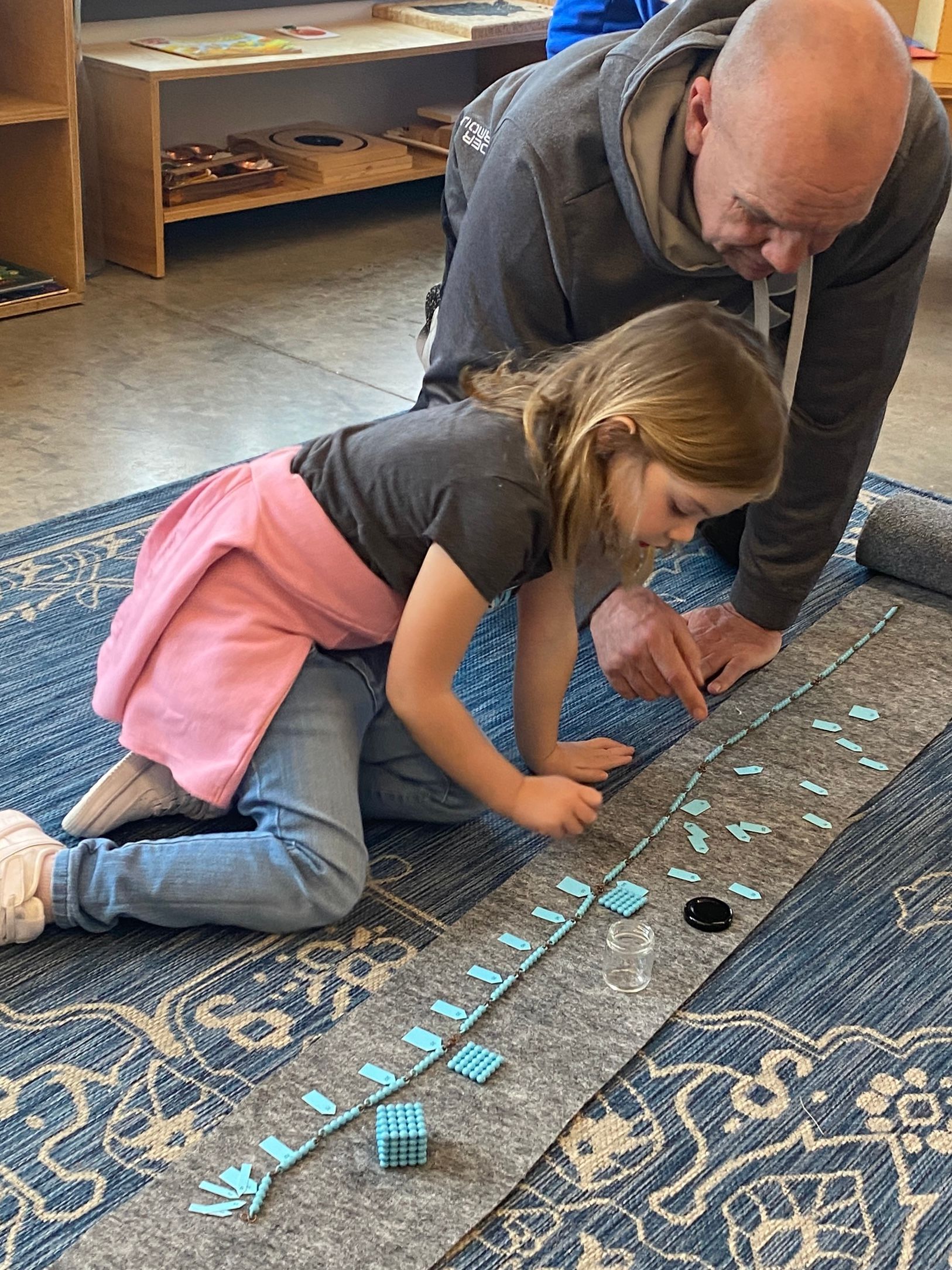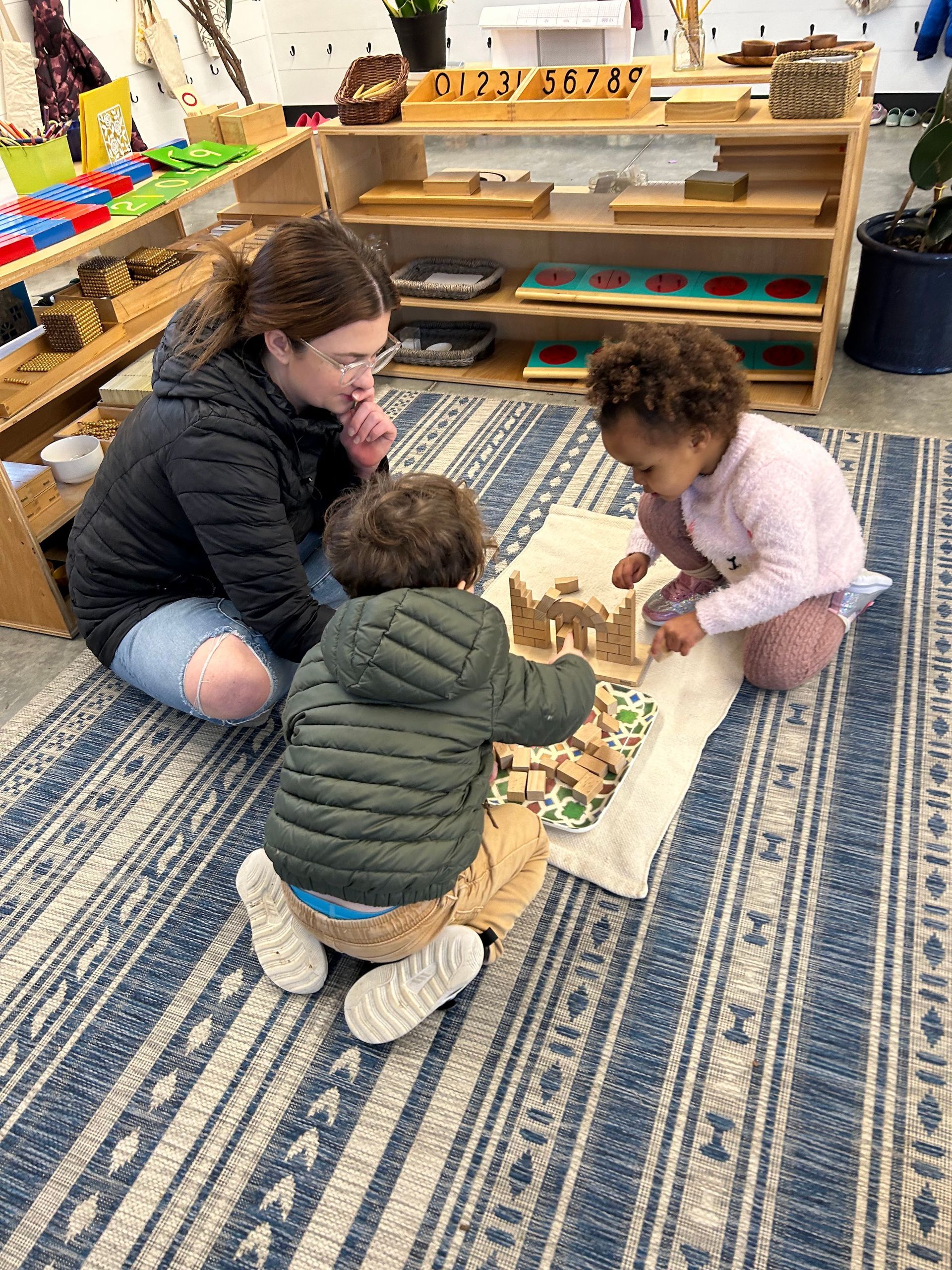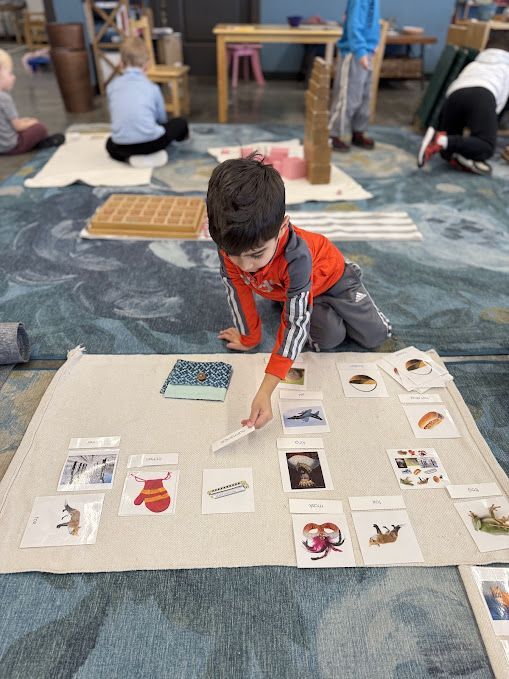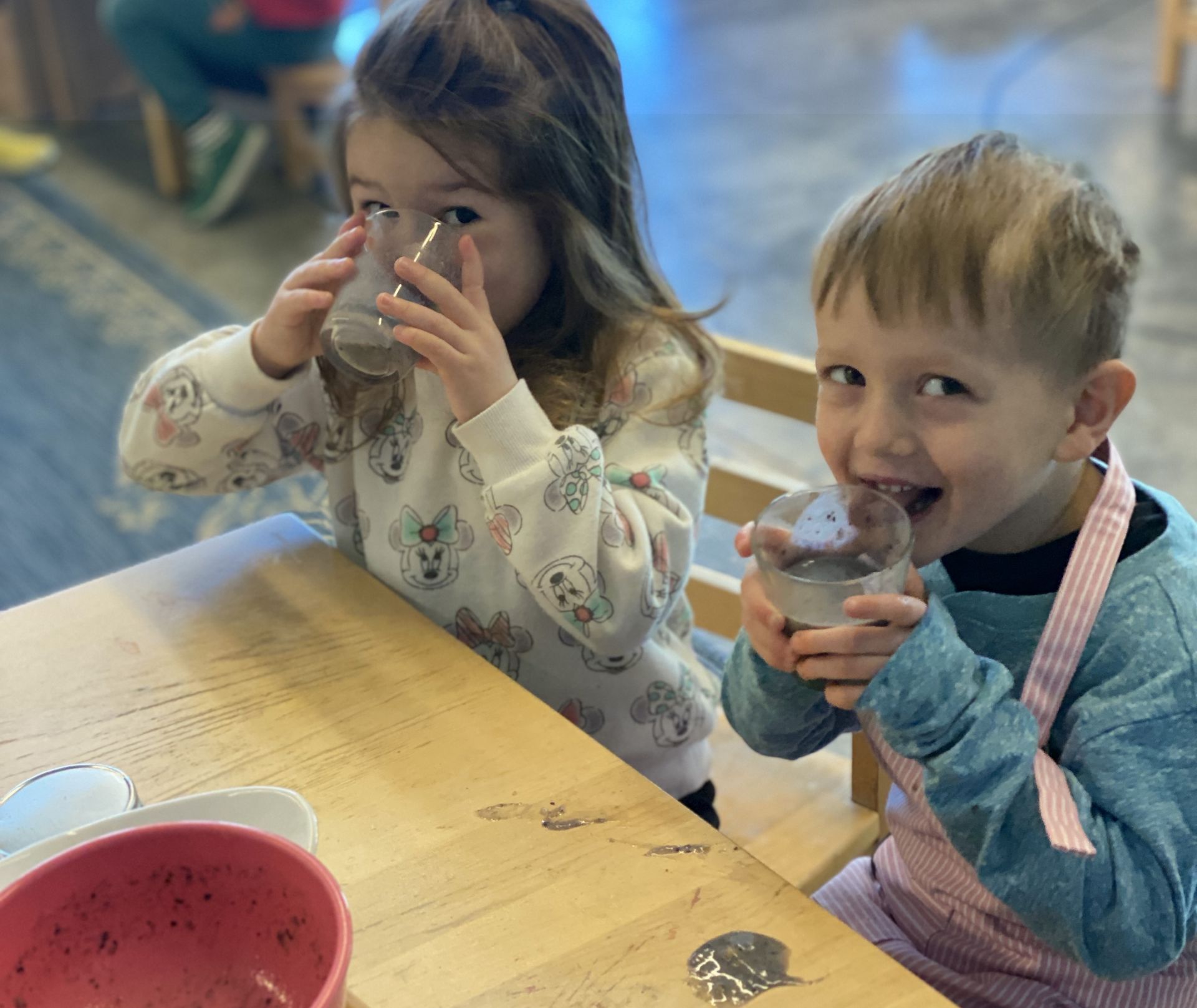“Do we really need to take for granted any method of education which involves suffering? Perhaps we, educationalists and parents alike, are going together, urged by love, along an enclosed path without an exit. Perhaps we ought rather to turn back and try another road.”
MARIA MONTESSORI
Montessori education is not just about the classroom; it extends to the home environment and relies heavily on collaboration between parents and teachers to create a harmonious and effective learning experience for the child.
Here are several reasons why a parent-school partnership is so important in Montessori education:
Consistency in Approach
One of the fundamental principles of Montessori education is consistency in the approach to child development. When parents and teachers work together, they can ensure that the child receives consistent guidance, expectations, and values both at home and in the classroom. This consistency promotes a senseof security and stability for the child, making it easier for them to adapt to the Montessori method.
Understanding and Support
Parents who are actively involved in their child's Montessori education gain a deeper understanding of the method and its principles. This understanding enables them to provide better support at home, reinforcing the concepts and values learned in the classroom. When parents and teachers share a common understanding of the child's development, they can work together to address any challenges or specific needs that may arise.
Reinforcing Independence
Montessori education places a strong emphasis on fostering independence in children. When parents and teachers collaborate, they can reinforce this independence by encouraging the child to take ownership of their learning and daily routines. Parents can create a Montessori-friendly environment at home, while teachers can provide guidance on age-appropriate tasks and activities.
Holistic Development
Montessori education seeks to develop the whole child – academically, socially, emotionally, and physically. A strong parent-school partnership allows for a comprehensive approach to education that considers all aspects of a child's growth. Teachers and parents can communicate about a child's progress, interests, and areas that may need attention, ensuring that the child receives well-rounded support.
Individualized Learning
Montessori classrooms prioritize individualized learning experiences tailored to each child's unique needs and interests. When parents are actively involved, they can provide valuable insights into their child's personality, learning style, and preferences. This information helps teachers design personalized learning plans that maximize the child's potential.
Extended Learning Opportunities
Learning doesn't stop when the child leaves the classroom. Parents can continue the Montessori experience at home by engaging in activities that align with Montessori principles. This extension of learning beyond school hours enhances the child's educational journey and reinforces the importance of learning as a lifelong endeavor.
Community Building
A strong parent-school partnership contributes to the creation of a supportive Montessori community. When parents are actively engaged, they can connect with other parents, fostering a sense of belonging and shared values. This sense of community benefits not only the child but also the parents themselves, who can draw on the support and insights of their fellow Montessori families.
Children thrive when home and school work in harmony!

